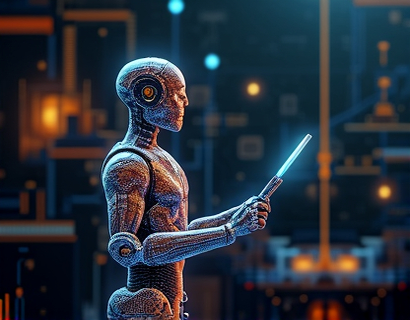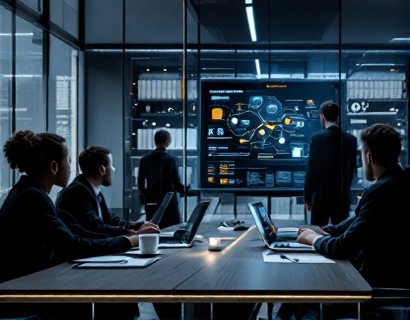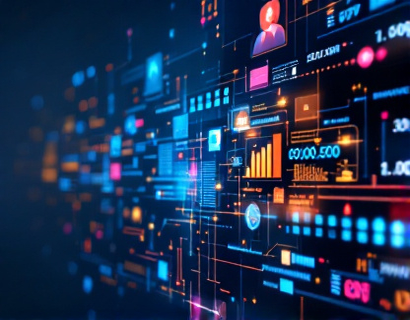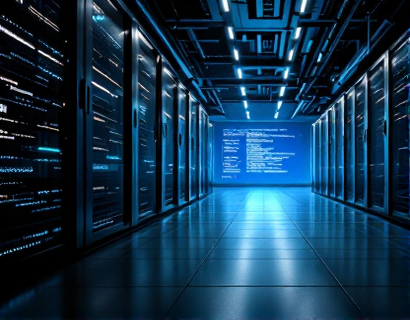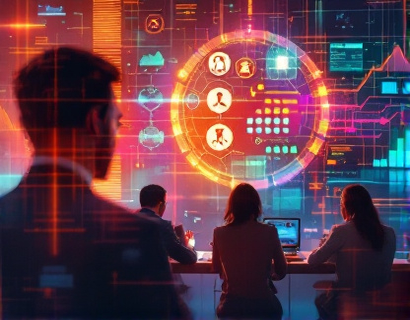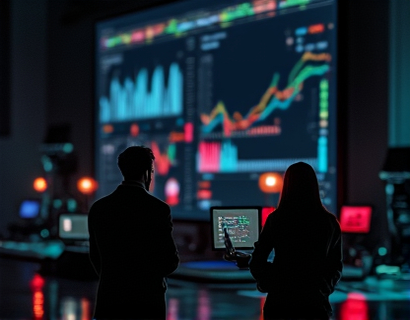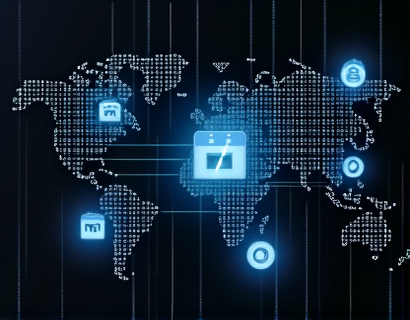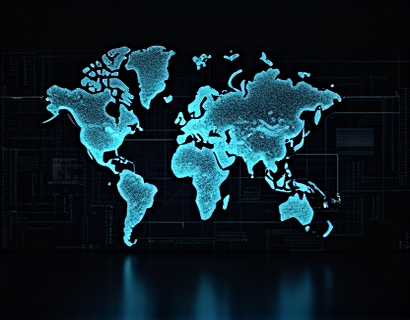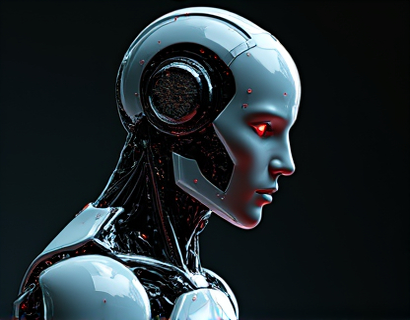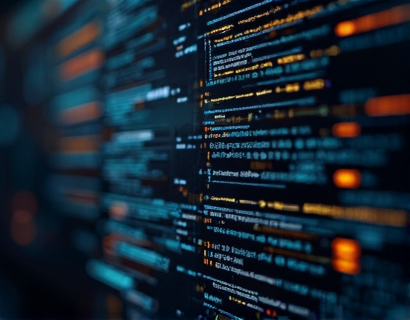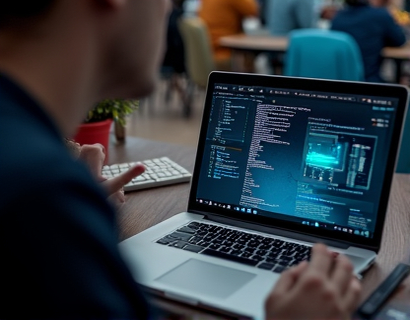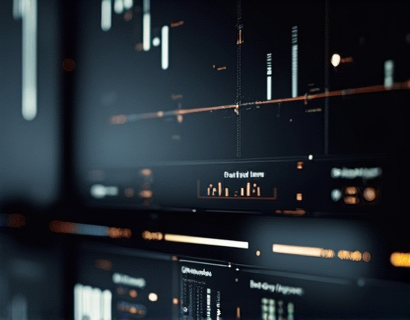Decentralized Productivity 2025: Transforming Business with AI and Crypto Synergy
The landscape of business productivity is undergoing a profound transformation, driven by the synergy of artificial intelligence (AI) and cryptocurrency. This convergence is giving rise to a new era of decentralized solutions that promise to revolutionize how businesses operate, connect, and innovate. In 2025, tech leaders and early adopters have the opportunity to harness this synergy through advanced platforms that integrate AI and crypto, offering tools that enhance productivity and connectivity.
The foundation of this transformation lies in the unique properties of blockchain technology, which underpins cryptocurrency. Blockchain's decentralized nature eliminates the need for intermediaries, reducing costs and increasing transparency. When combined with AI, which excels in data analysis, pattern recognition, and automation, the potential for innovation becomes immense. This article delves into how these technologies are merging to create a new paradigm in business productivity.
Understanding the Synergy of AI and Cryptocurrency
AI and cryptocurrency are not just complementary technologies; they are mutually reinforcing. AI algorithms can process and analyze vast amounts of data, including transaction data on blockchain networks. This capability is crucial for developing smart contracts, which are self-executing contracts with the terms directly written into code. Smart contracts automate and enforce contractual obligations, reducing the need for manual intervention and trust in third parties.
Moreover, the decentralized nature of cryptocurrency ensures that data and transactions are secure and tamper-proof. This security is essential for AI applications that handle sensitive business data. The combination of AI's analytical power and cryptocurrency's security and transparency creates a powerful toolset for businesses looking to streamline operations and enhance trust.
Decentralized Productivity Platforms
Decentralized productivity platforms are at the forefront of this technological revolution. These platforms leverage blockchain and AI to provide a suite of tools that enhance collaboration, efficiency, and innovation. Unlike traditional centralized platforms, decentralized platforms offer a more democratic and resilient ecosystem. Here are some key features and benefits of these platforms:
- Decentralized Storage: Utilizing blockchain-based storage solutions, these platforms ensure that data is distributed across a network of nodes, making it highly secure and resistant to censorship or data loss.
- Smart Workflows: AI-driven smart workflows automate repetitive tasks and optimize business processes. These workflows can adapt to changing conditions and learn from past performance, improving efficiency over time.
- Tokenized Incentives: By using cryptocurrency tokens, these platforms can create incentive mechanisms that motivate users to contribute value. For example, users who provide high-quality content or complete tasks efficiently can earn tokens that can be used within the ecosystem or exchanged for other assets.
- Transparent Metrics: Blockchain's immutable ledger provides transparent and verifiable metrics for performance and contributions. This transparency builds trust among users and ensures accountability.
One of the most significant advantages of decentralized productivity platforms is their ability to foster a global community of users. Without the constraints of geographical boundaries, these platforms can connect talent and resources from around the world, leading to more diverse and innovative solutions.
Enhancing Collaboration with Decentralized Tools
Collaboration is a critical aspect of modern business productivity, and decentralized tools are redefining how teams work together. Traditional collaboration tools often rely on centralized servers, which can be points of failure and potential security risks. Decentralized collaboration platforms address these issues by distributing data and processing across a network of nodes.
For instance, decentralized document editing platforms use blockchain to manage version control and access permissions. Each change made to a document is recorded on the blockchain, creating a transparent and immutable history. This ensures that all team members have access to the most up-to-date version of the document and can track contributions accurately.
AI-enhanced communication tools are another area of innovation. These tools can analyze communication patterns, suggest optimal meeting times based on participants' availability, and even translate languages in real-time. The integration of AI with decentralized networks ensures that these advanced features are secure and private.
Optimizing Business Processes with AI
AI plays a pivotal role in optimizing various business processes, from customer service to supply chain management. Decentralized platforms can integrate AI to create more efficient and responsive systems.
In customer service, AI-powered chatbots can handle a wide range of inquiries, from simple support questions to complex issue resolution. These chatbots can operate 24/7, reducing response times and freeing up human agents to focus on more complex tasks. When deployed on a decentralized platform, these chatbots can be accessed globally, ensuring consistent service quality regardless of location.
Supply chain management is another area where AI and decentralization can make a significant impact. By using blockchain to track the movement of goods, businesses can gain real-time visibility into their supply chains. AI algorithms can analyze this data to predict bottlenecks, optimize inventory levels, and reduce costs. Smart contracts can automate payments and ensure compliance with contractual obligations, further streamlining the process.
Building a Decentralized Economy
The synergy of AI and cryptocurrency is not only transforming individual businesses but also contributing to the creation of a decentralized economy. In this economy, value is created and exchanged through decentralized networks, reducing the reliance on traditional financial institutions.
Decentralized finance (DeFi) platforms are a prime example of this shift. These platforms offer a range of financial services, including lending, borrowing, and trading, all powered by smart contracts on blockchain networks. AI can enhance DeFi by providing predictive analytics, risk assessment, and automated trading strategies. This combination enables users to make more informed decisions and manage their assets more effectively.
Furthermore, the tokenization of assets allows for fractional ownership and easier liquidity. For instance, real estate or art can be tokenized, enabling multiple investors to own a portion of the asset. AI can help identify valuable assets, assess their worth, and match them with interested investors, all within a decentralized framework.
Challenges and Considerations
While the potential of AI and cryptocurrency synergy is vast, there are challenges that need to be addressed. One of the primary concerns is regulatory uncertainty. As these technologies evolve, regulatory frameworks are still catching up, leading to a patchwork of rules that can be challenging for businesses to navigate.
Another challenge is the technical complexity involved in building and maintaining decentralized platforms. Developers need a deep understanding of both AI and blockchain technologies to create robust and secure solutions. However, the growing community of tech enthusiasts and the availability of open-source tools are helping to democratize access to these technologies.
Scalability is also a critical issue. While blockchain technology offers many benefits, it can be slow and expensive to process large volumes of transactions. Layer 2 solutions and new blockchain protocols are being developed to address these scalability concerns, but they require ongoing research and development.
Future Outlook
Looking ahead, the integration of AI and cryptocurrency is poised to continue transforming business productivity. As technology advances, we can expect more sophisticated AI models that can operate efficiently on decentralized networks. The development of interoperable blockchain platforms will further enhance connectivity and collaboration across different ecosystems.
Moreover, the rise of Web 3.0, which emphasizes decentralization, user control, and privacy, aligns perfectly with the goals of AI and cryptocurrency synergy. Web 3.0 will provide a more open and inclusive digital environment, fostering innovation and empowering users.
In conclusion, the convergence of AI and cryptocurrency is opening new frontiers in business productivity. By leveraging the strengths of both technologies, businesses can achieve higher levels of efficiency, security, and innovation. As tech leaders and early adopters, embracing this synergy will be crucial for staying competitive in the rapidly evolving digital landscape.







